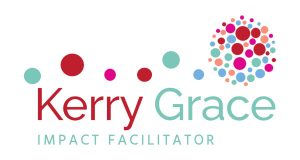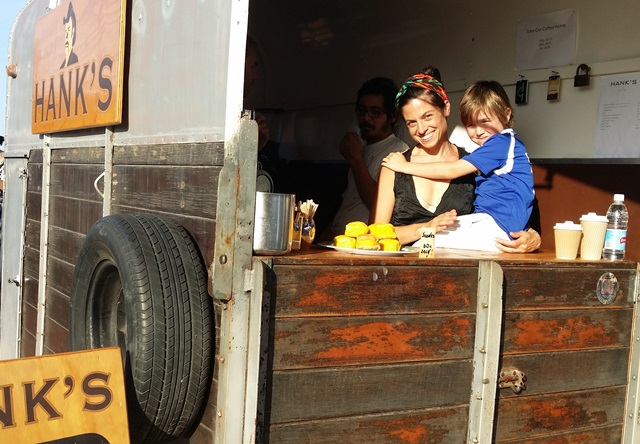Way back when a student could actually afford to live in Sydney, I ‘escaped’ my small regional town neatly packing my big dreams into lofty goals and vowing never to return.
For almost a decade I lived in share houses starting out in the Northern Beaches gradually making the daring journey across the big bridge to the inner west, I met people from all walks of life and I enjoyed a patchy career pathway that weaved self-employment with temp work, the odd full time job and an amount of time on the dole.
Back in the day starting a business wasn’t called entering the ‘start-up culture’, there were no pitchfests, government incentives (that I could identify) nor carloads of business support officers. There was just success or failure and somewhere in between sat the dole.
I’ll never forget the day a Centrelink staff member sneered at my file and made comment about how I used to own a car “you’ve gone down in the world” she told me. I was a 26 year old woman, pregnant with her first child and recently relocated to a new place. It wasn’t that I didn’t have experience nor a pretty decent resume. The problem was I was in a new place, without my established networks, I couldn’t get a job interview and if I did the job fell through as soon I told the potential employer I was with child.
These were the days before I returned to university to do my degree by correspondence, before I discovered my love of working in adult education and community and economic development and before I became a ‘respectable’ mum and home owner.
It was a great irony that one of my first really successful business ventures was as a contractor delivering ‘Work for the Dole’ programs – actually, seven in total. And there’s nothing quite like lived experience to influence successful delivery.
It wasn’t easy living on the dole then and with ever increasing living costs it’s a whole lot harder now. I mean, if we want to continue to encourage a black market of people who are selling all kinds of stuff just to make ends meet by all means let’s leave the payments at the level they are at. But if we really, really want to see a productive, forward thinking and work able population it’s really time to change the record.
Through almost 20 years working with people who are for many and varied reasons marginalised, down on their luck or otherwise lost I came to understand that there are many, many reasons that people don’t quite connect with work.
I’ve also come to understand that sometimes the systems that are designed to guide them fail and it’s not always through lack of trying on behalf of the people working in said systems.
If you don’t believe me I dare you to quietly sit in a Centrelink waiting room for a few hours. Just sit, listen and ask yourself how you would respond if you were in this situation. I want you to consider what it would be like if you were struggling to find enough money to put food on the table and because you couldn’t afford fuel to get to your Job Service appointment you were breached meaning money was taken from your payment. I want you to imagine being a person with skills who can’t find an appropriate job and being asked to paint a community hall while your luck changes. I want you to ask yourself how you would feel if you heard people saying ‘dole bludger’ under their breath as they looked at you, then quickly glanced away.
In working with hundreds of people who are either looking for work, getting into their employment pathway, in school discovering what next or receiving some support as they try and grow a business or shift back to work I have NEVER worked with someone I would call a ‘dole bludger’.
I have met people who only want to work part time (often with good reason), who want to work in a particular industry (often with good reason), for an employer who pays a fair wage and provides a safe workplace (a reasonable consideration), who require flexibility to look after kids or relatives (particularly fair in a Country that values volunteerism). I’ve worked with people who have health issues that prevent them for holding down a job and people who have dependencies which remain untreated for many and varied reasons who also find typical employment difficult.
And then there’s lacking transport and housing, dire gaps in support services (read mental health, drug and alcohol rehabilitation etc. Very few of these factors come into the equation when a person is forced into the job seeking factory.
I also know that there is a lot we can do to encourage and nurture people into meaningful career pathways and that it’s not likely this will happen through force, punishment nor criticism.
There is a very, very dangerous conversation going on in Australia right now about unemployment. Anything you hear about ‘job snobs’ or ‘dole bludgers’ is likely to be laden with the standard lines about tonnes of jobs and simple solutions.
I work towards ensuring that employers have employees – and jobseekers have jobs and I can assure you, if it were that simple the issues of lacking staff and unemployment would have been solved long ago.
I wonder, next time you feel the need to criticise someone who is unemployed if you’d like to spend a little time picking fruit or serving customers. Or, perhaps you may consider taking a moment to ask the person what challenges they are finding as they attempt to seek work…
Come on Australia – we are kinder than this.
Kerry Grace is a passionate advocate of regional Australian communities. She is currently working as the Director of Regional Development for Regional Development Australia Mid North Coast and Norfolk Island.
Kerry is the founder and CEO of Evolve Group Network (est 2004). Kerry’s work focuses on empowering everyday regional leaders (do-ers) to build sustainable communities.
With a strong consultancy background she has worked with all levels of government, not for profits and Aboriginal corporations. She is often called upon for her facilitation skills to moderate pathways forward for contentious and complex issues.
Kerry has tertiary qualifications in business (marketing and tourism), and additional qualifications in life coaching and adult education.
Image credit: Markus Winkler on Unsplash


